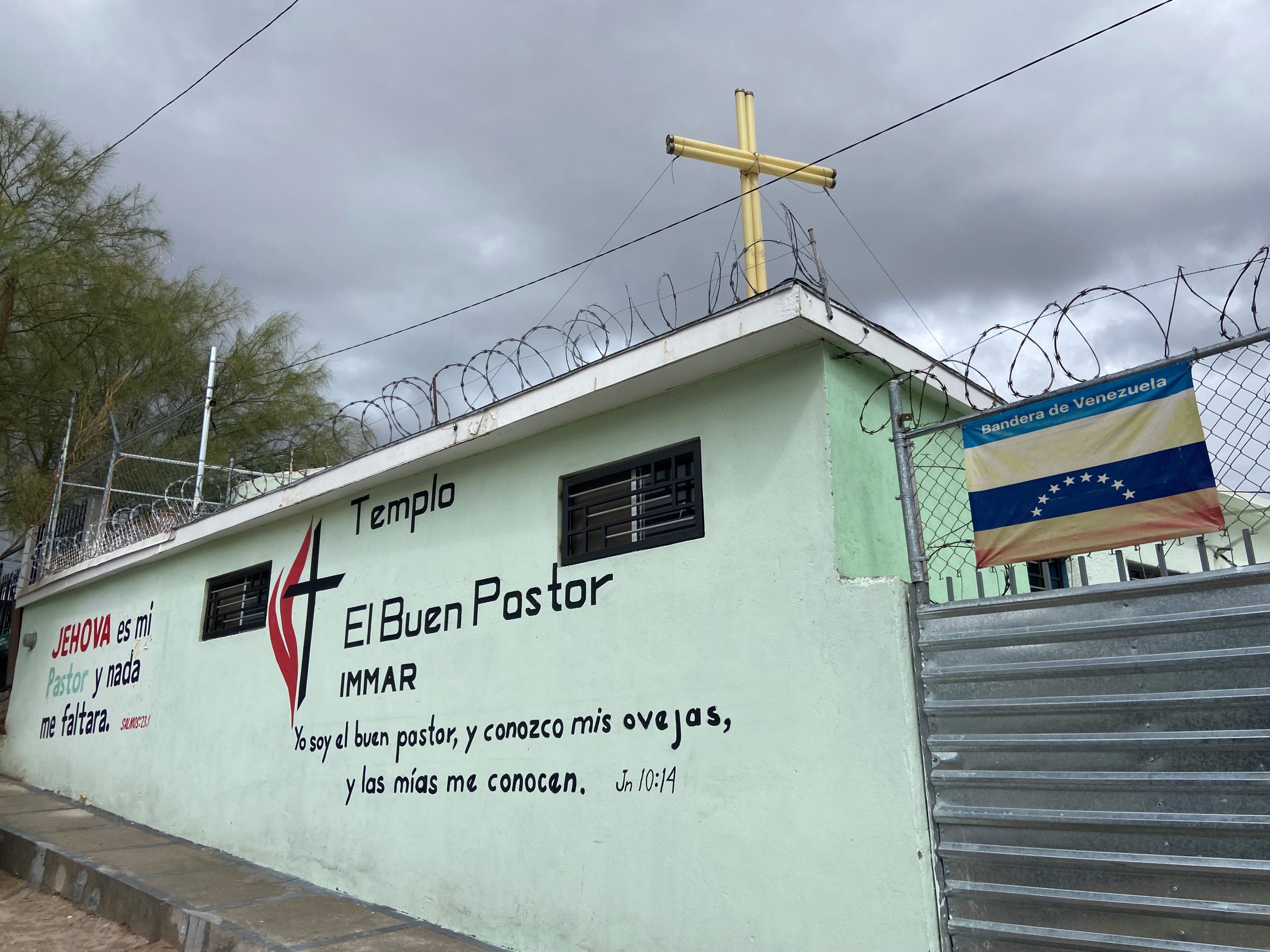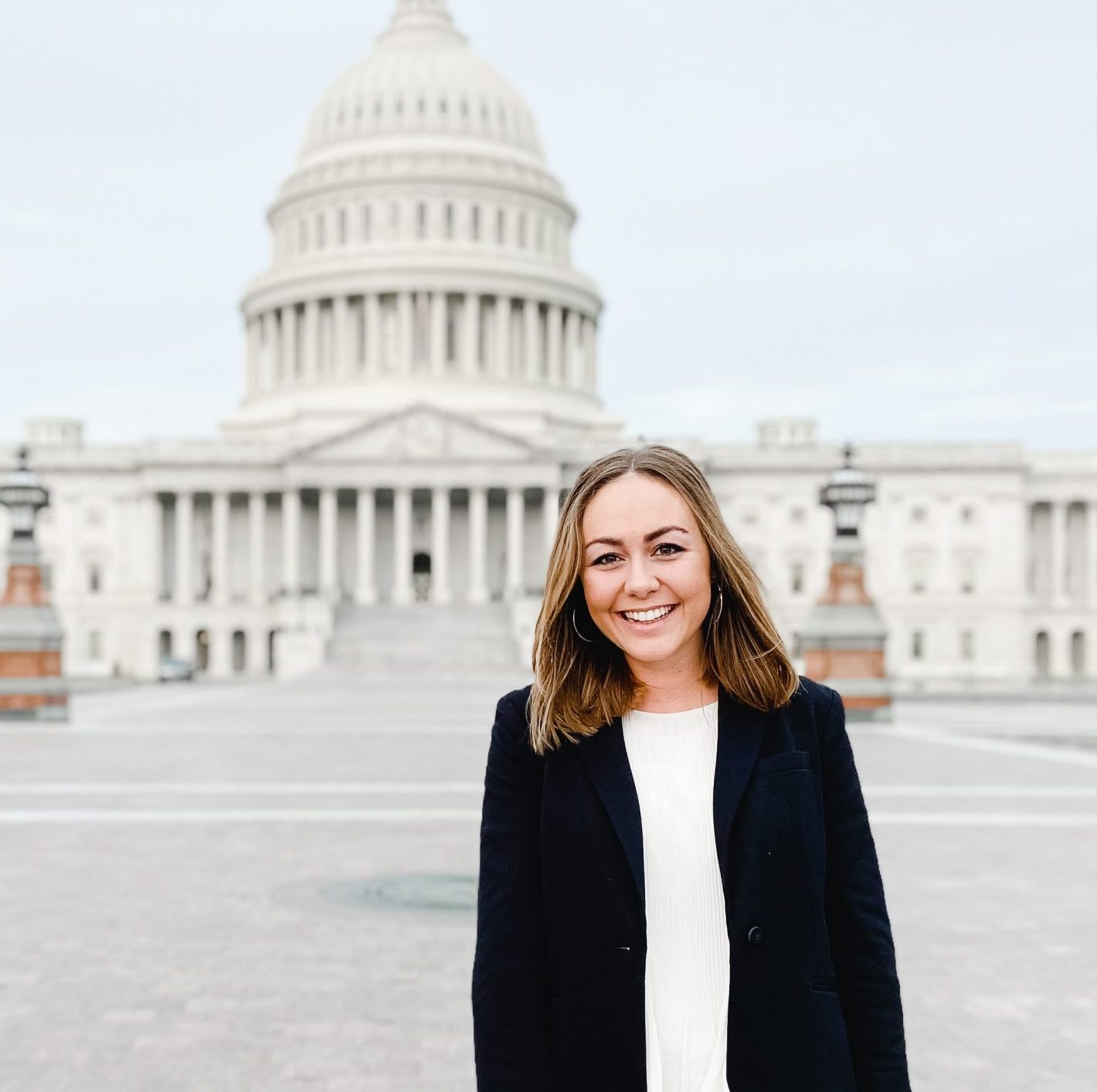What Two Pastors at the Border Taught Me about Faithfulness
October 19, 2021
By: Hannah Daniel
A few weeks ago, I had the opportunity to visit the U.S.-Mexico border in El Paso, TX and Ciudad Juárez, Mexico. Despite caring deeply about immigrants and even working in immigration advocacy, this was my first experience seeing the border first-hand. Although there were many impactful parts of the trip – seeing the border wall, meeting with Border Patrol, seeing the disparities between two sides of the same city – the experience that struck me most was meeting with two pastors who had converted their churches into shelters for migrants.
These two pastors – one in the US and one in Mexico – told of their complete reliance on God to provide for their needs and the needs of the migrants they serve. Without hesitation or complaint, they simply choose to serve those that – through thousands of different stories and traumatic circumstances – have ended up right in front of them. They both gave different iterations of the same message: I don’t determine immigration policy. I don’t control who comes, how many people come or where they come from. All I can do is serve the people God has placed in front of me.

I left the trip not only inspired by their faithfulness but asking myself: what does it look like for us to do what God has put in front of us as well? For most of us, when we hear about the situation at the border, we have one of two responses – either apathy towards what is happening because it does not affect us directly or discouragement because of the overwhelming breadth of the problems.
These pastors, however, show us a different response. They could have also chosen apathy and to ignore the needs of migrants in their area and only focus on their preexisting churches and ministries. Instead, they chose to take the words of Scripture seriously when it admonishes us that caring for the vulnerable is a necessary part of faithful worship. In Isaiah, the Lord reminds us of the type of worship he delights in:
“Is not this the fast that I choose: to loose the bonds of wickedness, to undo the straps of the yoke, to let the oppressed go free, and to break every yoke? Is it not to share your bread with the hungry and bring the homeless poor into your house; when you see the naked, to cover him, and not to hide yourself from your own flesh? Then shall your light break forth like the dawn, and your healing shall spring up speedily; your righteousness shall go before you; the glory of the LORD shall be your rear guard. Then you shall call, and the LORD will answer; you shall cry, and he will say, ‘Here I am.’ If you take away the yoke from your midst, the pointing of the finger, and speaking wickedness, if you pour yourself out for the hungry and satisfy the desire of the afflicted, then shall your light rise in the darkness and your gloom be as the noonday. And the LORD will guide you continually and satisfy your desire in scorched places and make your bones strong; and you shall be like a watered garden, like a spring of water, whose waters do not fail” (Isaiah 58:6-11 ESV).
What are ways that we can push back against apathy and serve the vulnerable as part of our worship – even when we are not directly at the border? We can give to those working on the ground. We can give our time to those working to welcome the vulnerable in our communities. We can advocate for better policies.
These pastors also show us a way of steady, faithful action rather than one of discouragement and burnout. Often for myself, as someone who cares deeply about these people and this issue, I find myself in this category. I feel like it is all on my shoulders to fix the problems. The scope of the brokenness and challenges in our immigration system – that hurt human beings made in the image of God – feels untouchable, despite my efforts. Feeling of weariness and discouragement can rise to the surface and cause me to question whether my efforts really matter at all.
These pastors reminded me that God has only given us responsibility for what he has put directly in front of us. He doesn’t expect us to fix it all – only he can ultimately bear that burden and one day accomplish that. He alone can provide the justice, peace and restoration I long to see. All he expects of us is to show up each day and serve the people he has put in our paths, through the means that he has given us. For these pastors, every day, they show up and give migrants a place to sleep, clothes to wear, food to eat and a safe place to rest. For me, God has asked me to show up every day and keep advocating with the voice he has given me and the privileges that I have as a citizen.
I left this trip committed – with a renewed urgency – to continue advocating and praying for a more humane and just immigration system, but I also left with a holy reminder that the best I can do is offer my frail efforts and meager offerings to the Lord. I can bring my weary heart to him, trust that he will bear the burdens I cannot and then continue to show up every day doing the work he has called me to.
“Let us not become weary in doing good, for at the proper time we will reap a harvest if we do not give up” (Galatians 6:9 NIV).
 Hannah Daniel is a Tennessee native currently living in Washington, DC. She graduated from Union University in 2020 and now works as a Field and Constituencies Associate for the National Immigration Forum. She is passionate about seeing change in the immigration system and seeing the Church better engage politics.
Hannah Daniel is a Tennessee native currently living in Washington, DC. She graduated from Union University in 2020 and now works as a Field and Constituencies Associate for the National Immigration Forum. She is passionate about seeing change in the immigration system and seeing the Church better engage politics.






